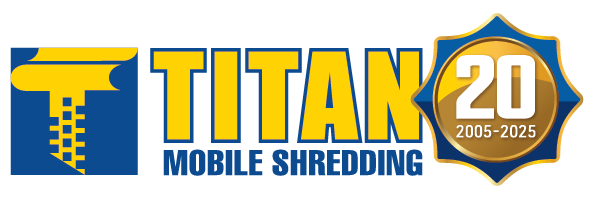Know What to Keep and What to Shred
How often do you find yourself emptying out your wallet or handbag, simply because it is exploding with a pile of documents, such as bills, receipts, ATM slips, and such? Do you discard such papers into the garbage bin, or shred them for safe disposal? In times when cybercrime is rampant, and dumpster diving is legal, protecting your physical and digital information is almost entirely in your hands. Read on for some simple guidelines on managing your personal documents.
Tips for Personal Document Management: Preserve Safely, Destroy Securely
Certain personal documents require lifelong preservation, and you may already be storing them in a home safe or fireproof box, from where you can easily retrieve them as and when needed. This includes:
- Birth, marriage and death certificates
- Passports and other travel documents
- Social security cards, and other government issued identity documents
- Education certificates, degrees, diplomas, mark sheets, and transcripts
- Tax returns, pension plans and retirement plan documents
- Wills, deeds, and property agreements
- Divorce decrees or adoption papers
- Mortgage documents, loan agreements, and insurance policies
There are several other documents that you may need to store until such time as you own that item or asset, or until they have no further use for any regulatory purposes. Here’s an indicative list of records that you should shred when they become redundant:
- Vehicle purchase or lease documents, and maintenance records – Keep until you sell the vehicle and hand it over to the new owner, or until you return the leased vehicle to the dealer.
- Warranties and receipts for equipment, appliances and other high-value items – Save the receipts for as long as you own the items. Retain warranties until they are valid.
- Store Receipts of non-warranted items – Save until a valid return or exchange is possible.
- Sale or purchase records of stocks, bonds, mutual funds – Retain as long as you own the funds, or for as long as required for IRS reporting purposes.
- Documents for federal or state tax filings, including W-2 forms – Keep for 3 to 7 years after filing tax returns.
- Health plan statements – Retain until your provider settles the bills.
- Card transaction receipts or ATM slips – Keep until your monthly statements are generated, and you can verify transactions against the statements.
- Canceled personal checks – Retain for a minimum of 1 year, or longer if needed for other purposes, such as warranties or insurance.
- Pay stubs – Keep for a year, or until you receive your employer tax statements.
- Past employment papers – Save until you need for tax purposes.
- Expired driver’s licenses, health cards and insurance policies – Retain until valid.
- Contracts, receipts or invoices of home improvement projects – Save until you own the home.
- Home utility bills, including gas, electricity, water, cable, internet, telephone, and more – Keep until no longer needed.
Certain documents have no future use, but can be extremely valuable to petty thieves and fraudsters since they contain your address, contact details, bank account numbers, credit card details, or other personally identifiable information (PII). Here are some examples of documents that you may want to shred immediately.
- Junk mail, envelopes and package labels that contain your name or address
- Unwanted bills and receipts
- Unwarranted credit cards issued by various financial institutions
- Used train or plane tickets, boarding passes, itineraries, luggage tags
- Redundant paperwork that contains identifiable medical, financial or employment information or personal history
These are not exhaustive lists, and depending on the nature of the document, you may have to use your own discretion on what to keep and what to shred. As a general rule of thumb, do not shred a document, if you think that its absence could lead to any kind of legal or financial trouble.
Shredding your paper documents is a critical step towards protecting yourself and your family from falling prey to frauds, scams, and identity theft. For secure destruction of your personal physical records, rely on the residential shredding services of a reliable, professional, NAID AAA Certified company, such as TITAN Mobile Shredding. Use our home pick-up services, or bring your no longer needed confidential papers to our drop-off points. You can also take advantage of our monthly community shredding events that take place at three different locations across Montgomery and Bucks County. In addition to paper shredding, we provide safe disposal of hard drives, CDs, DVDs, and other digital media.
To know more about our residential shredding services, call (866) 848-2699 or contact us online



